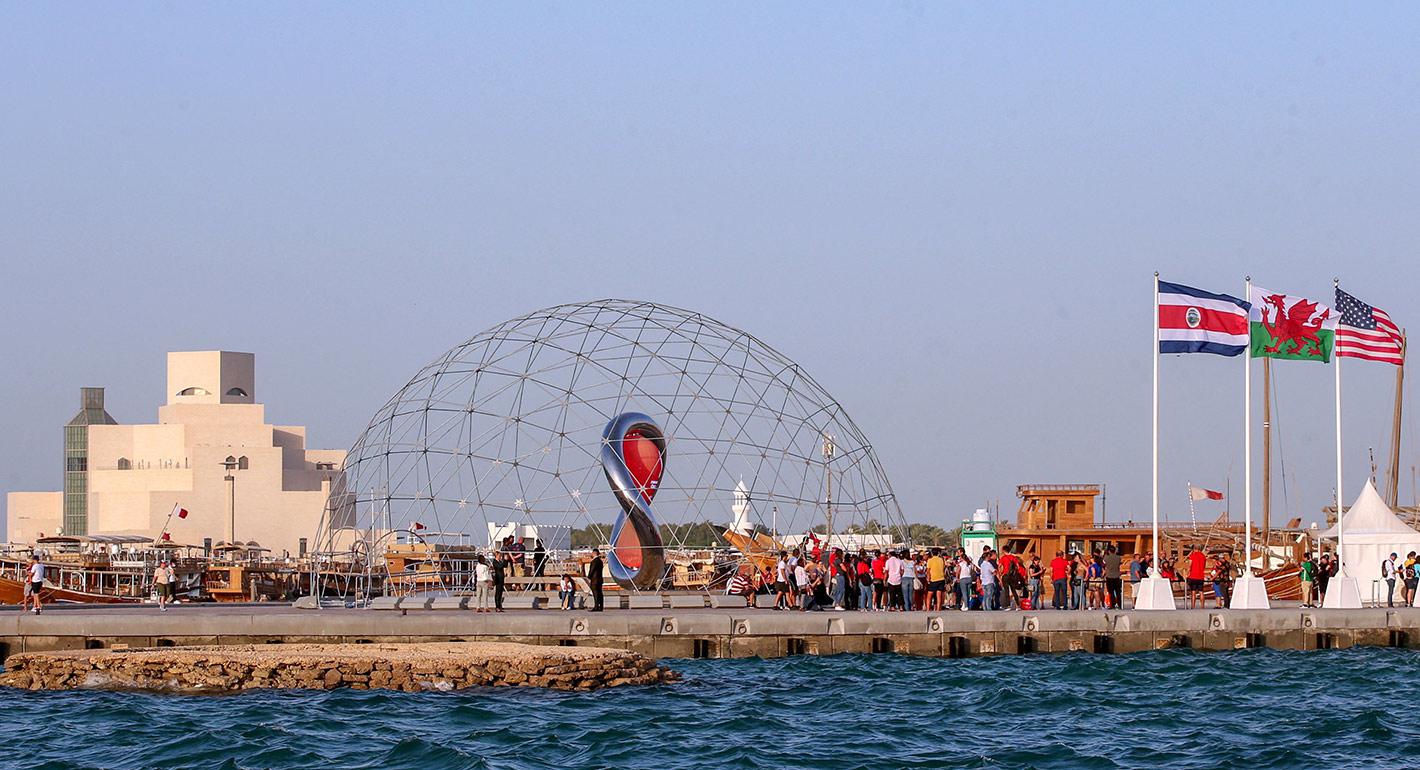The 2022 World Cup which will run from November 20th to December 18th is quickly approaching, as Qatar prepares to host massive numbers of spectators and tourists. Much of the discussion surrounding the event in Western media has focused on concerns for LGBTQ+ visitors, the treatment of migrant laborers, and rules regarding the consumption of alcohol. Yet, as leaders across the Gulf experiment with social and economic liberalization, the upcoming games and resulting international pressures are testing the limits of reform and social change in Qatar.
Qatar’s nation-building strategies have always centered on preserving an Islamic national identity, with the state maintaining conservative social policies to symbolize its commitment to Islam. At the same time, however, the state has elevated increasingly moderate interpretations of Islam in the 21st century to facilitate liberalization, holding that commitment to Islam need not preclude social change or modernization.
The upcoming games have tested just how much change Qatar can tolerate, as intense backlash from Western human rights groups has stemmed from allegations surrounding the treatment of migrant laborers working to build the World Cup stadiums, along with the country’s laws forbidding homosexuality. Moreover, logistical concerns about alcohol consumption throughout the games have also been a source of public discussion, leading Qatar to announce accommodations that would allow visitors to drink alcohol in designated areas.
Qatar’s response to this criticism reflects its efforts to balance conservative pressures with ambitions to amass soft power and boost economic development. For example, the government has made efforts to reform the migrant labor system since 2017, including passing legislation in 2020 setting a minimum wage for migrant workers and abolishing the requirement of employer permission to change jobs.
Meanwhile, Qatari officials have also responded publicly to concerns for the safety of LGBTQ+ fans and athletes at the tournament. In response to an openly gay Australian football player who expressed fears about participating, chief executive of the tournament’s organizing committee, Nasser Al Khater, described Qatar as a tolerant and safe country for all. Referencing the “scrutiny” his country has faced, he said, “If it’s something that’s going to be catalyst for change, we’re all for it.” Recently, Al Khater further reinforced this position when asked about Qatar’s position on fans who display the rainbow flag, maintaining that “everyone is welcome here. . . all we ask is for people to be respectful of the culture.”
While Qatar’s response has been criticized by Western media as evasive, Qatari officials discussing LGBTQ+ issues directly is unprecedented and reflects a desire to use the games as a diplomatic opportunity. Of course, conservative forces opposed to reform continue to place limits on how far Qatari leaders are willing to go in implementing change. Domestic backlash has included a citizen group releasing an infographic on Twitter, asking tourists to respect Qatari culture by avoiding behaviors like “drinking alcohol,” “immodesty,” and “homosexuality.” Qatari leaders quickly identified the post as disinformation when many assumed it had been approved by the government. Nonetheless, there is a growing debate among the Qatari public on social issues, and some would like to see Qatar enact more progressive policies.
As the World Cup nears, international pressure has not yet been enough to push Qatar’s approach to social change beyond outward-facing rhetoric and performative reform. Rather, the spotlight the event has placed on Qatar has drawn attention to tensions among conservative domestic forces and Qatari officials focused on the pursuit of diplomatic power—a battle which is likely to continue after the soccer fans leave in December.
Alainna Liloia is a researcher and writer specializing in human rights and women’s issues in the Gulf countries. She recently completed her doctorate in Middle Eastern and North African Studies at the University of Arizona.






